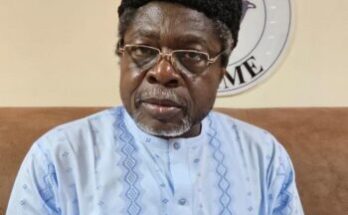Corruption is the greatest tragedy and main obstacle to the stability and development of Nigeria. The many faces of corruption and the various ways it affects and impacts on the socio-economic and political systems of the country are too glaring and have been well documented and need not be regurgitated here. Annual cross-border flow of proceeds of crime is estimated at US$1-1.6 trillion.
Half of this is from Less Developed or Developing Countries (LDCs), out of which $20-40 billion is from bribes to public officials in LDCs. Nigeria’s share is the highest due to the prevalence of corruption. In 2014, the African Union High level Panel on Illicit Financial Flows estimated that about $60 billion has been illegally transferred out of Africa – $40 billion from Nigeria.
President Muhammadu Buhari, in his speech at the 70th United Nations General Assembly in 2015 stated that $150 billion was looted from the government treasury in Nigeria between 1995 and 2015. Other estimates suggest that $182 billion was stolen from Nigeria and stashed off shore between 2000 and 2009.
Investigations into arms procurement for the military under the Office of National Security Adviser revealed that $2.1 billion was shared among politicians leaving the citizens at the mercy of the Boko Haram insurgency. In all, more than $500 billion has been lost to graft in Nigeria since independence.
The greatest expectation on President Buhari was and still remains in the ability of his government to stem the tide of the monster called ‘corruption’. Consequently, asset recovery is a priority on the anti-corruption agenda of the Buhari administration. This has been appropriately articulated in the National Anti-Corruption Strategy 2017.
Illicitly obtained funds are usually invested abroad either because domestic currency or economy is unstable; to avoid detection or simply to place the money outside the reach of a national government’s jurisdiction. Until recently, financial institutions in financial centres were accepting and would accept stolen money without question.
This has now changed relatively due to the anti-money laundering standards being enforced the world over. The principles behind the recovery of assets include the common understanding that it is an economic intervention strategy with potentials of bringing back what have been stolen or misappropriated, thus, increasing the revenue profile of the government; to that extent, it serves as a restitution to the society/citizens who have been ‘victimized’ by acts of corruption.
Asset recovery also aims to deny criminals their illegal gain and to prevent them from misusing it for organized crime purposes. But most importantly, it is an anti-corruption strategy with potential of removing negative role models from society and rebutting the notion that crime pays.
The international response The international community and governments have developed various tools for recovering the proceeds of crime. However, in spite of domestic legislation, which allows confiscation and forfeiture of the proceeds of crime, globalisation and technological advancement have allowed perpetrators of crime to continue to launder the illicit proceeds of their crimes.
The subject of asset recovery has become one of the major themes in discourses on development funding, due in part to the enormous amount of resources that are lost annually by developing countries to corruption.
Over the last couple of decades, the legal and criminological approach to dealing with criminal activities like drug trafficking, corruption, money laundering and terrorist financing have undergone a paradigm shift from the utilitarian and the traditional “just deserts” model of punishment to a “dispossession” model which aims at taking the profit out of crime.
Recovering the proceeds of crime takes the profit out of the crime because it deprives perpetrators of their illicit gains. Asset forfeiture and asset recovery have thus, become some of the more innovative tools to combat economic and financial crimes. How to manage the recovered loot
A recent statement in the news media attributed to the Vice President indicated that government intends to invest recovered proceeds on a ‘Social Protection Scheme’ which is one of the pet programmes of the Buhari administration.
While no body, not even the other parties to any negotiated recovery, unsolicited should determine to government how to spend its resources, the Nigerian citizens, to whom these resources belong should be concerned and interested in how effective their commonwealth is utilized.
And this is the main thrust, indeed raison de taire of this piece – to contribute to the debate on how best to apply the recovered assets. It is obvious from public reactions and commentaries in the news media that majority of Nigerians do not believe that government is on the right direction based on experiences of the past.
While the Social Protection Scheme of the government is a noble programme, it is doubtful how effective it can be if its funding would depend on recovered proceeds; the legal status of which may not be clear as to whether the National Assembly has to appropriate the recovered loot before government can apply to the scheme.
There would be an issue as to whether such funds should/or not be deposited in the consolidated revenue account according to section 80 of the Constitution of the Federal Republic of Nigeria (1999), thus, the other tiers of government (states and local) would be entitled to it.
Regardless of the legal technicalities surrounding the recovered proceeds, it is doubtful channeling proceeds of corruption in this way would make a difference from how previous recoveries were expended. Shehu is a professor of Criminology, National Open University, Abuja



